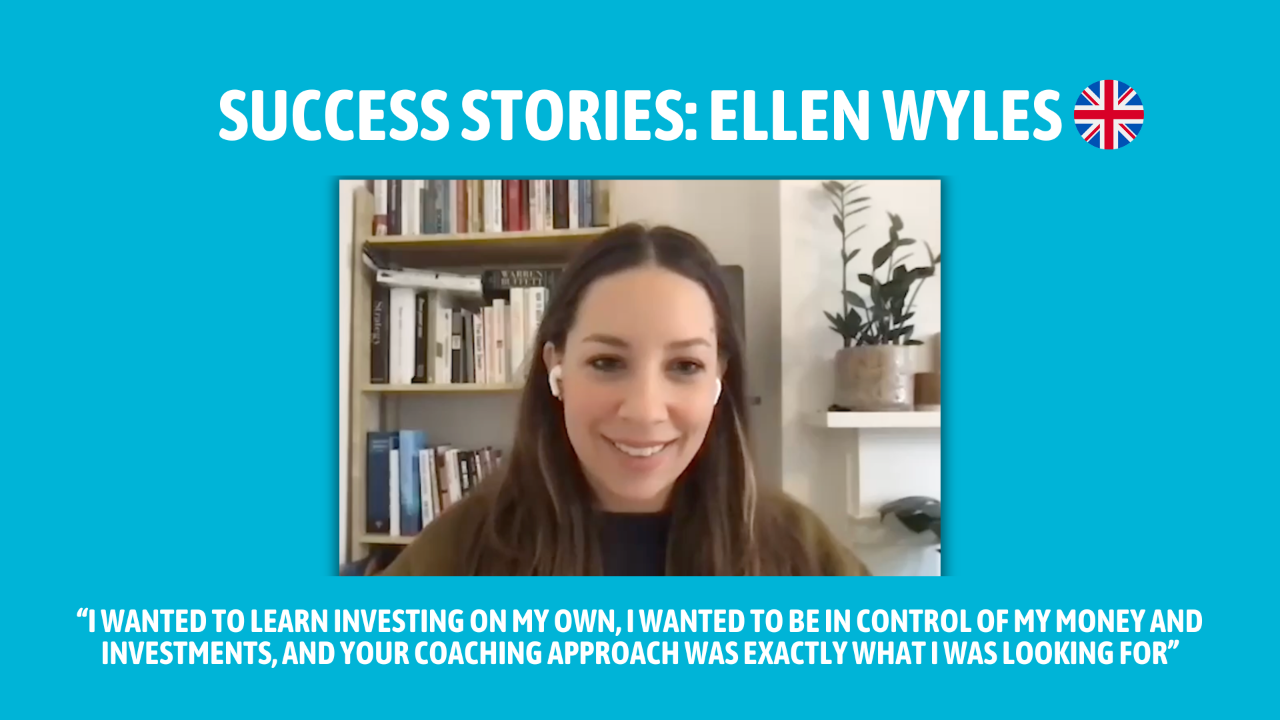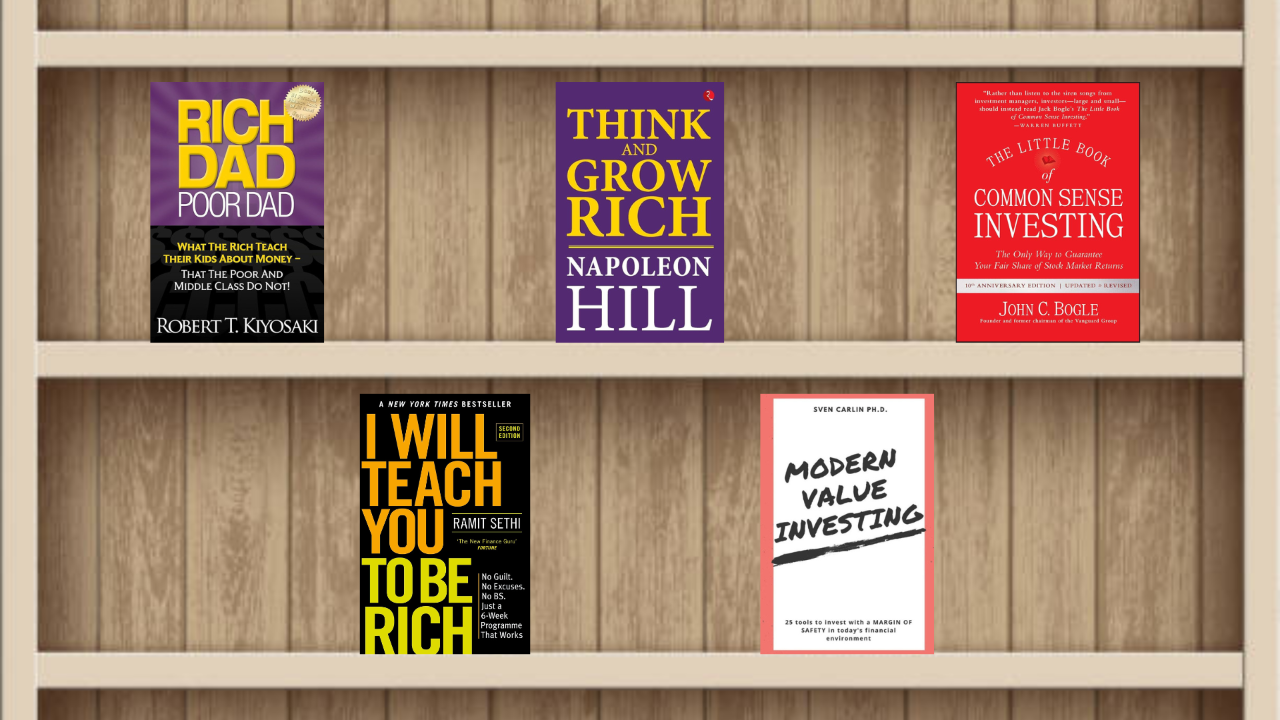
Quiz Time: Have you ever Noticed This?
Oct 19, 2025Hello Stoic Investors,
Not sure if you’ve noticed, but every week I start each blog with the same words:
Stoic Investors.
Today, though, I want to pause for a moment and ask myself (and you):
What does it truly mean to be a Stoic investor?
It’s not just about saving more, budgeting better, or investing smarter.
The real purpose of these newsletters have never been simply to teach you about money — it’s to teach you how to manage it like a true Stoic:
Someone who moves through life with clarity, control, and peace, even when money, markets, or circumstances shift.
Each week, I share lessons, reflections, and tools — small fragments that, over time, help you shape that Stoic mindset.
But I want to take a step back and bring everything together, focusing on what truly matters.
So today, I’m sharing the 4 Money Rules that, in my view, are essential to truly live like a Stoic — both in life and in managing your finances.
Money Rule One: Don’t spend more than you earn
A Stoic never leaves things to chance — especially not his finances.
The first step toward financial peace is simple yet powerful: spend less than you earn.
To do that, you need organization.
Most people don’t have a spending problem — they have a clarity problem.
They don’t know where their money goes each month, and that uncertainty is what causes anxiety.
Start by using a budget planner.
If you don’t have one yet, you can download mine here.
Once you see the numbers clearly, you regain control.
A good starting point is to divide your income like this:
- 75% for essentials: rent, bills, groceries, transportation
- 15% for investing: your future self will thank you
- 10% for your emergency fund: because life happens
This is a fundamental rule.
Because no matter how disciplined you are, life will throw surprises at you.
The Stoic way isn’t to hope those things never happen:
it’s to be prepared when they do.
Money Rule Two: Your friends shape how you think and handle money
Choose friends who lift your financial thinking, not limit it.
This is the key lesson from Rich Dad Poor Dad: the difference between “poor” and “rich” often isn’t income — it’s mentality.
It’s how you see opportunity, how you react to fear, and how you use (or waste) what you already have.
Many of us grew up hearing:
“Money doesn’t grow on trees.”
“People who get rich are just lucky.”
“Investing is too risky.”
And because those ideas came from people we loved or trusted, we accepted them as truth.
But a Stoic questions everything — even inherited beliefs.
Your environment shapes your mindset.
If your friends complain about money, envy others’ success, or spend every paycheck the moment it hits their account — you’ll start doing the same, often without realising it.
That’s why it’s crucial to surround yourself with people who elevate you, not drain you.
Friends who cheer for your goals, talk about ideas instead of gossip, and remind you that discipline > desire.
They don’t need to be rich — they just need to be growth-oriented.
Money Rule Three: Investing isn’t for the rich — it’s how you get rich
A Stoic doesn’t wait for luck — he builds his fortune through discipline and time.
And nothing embodies that better than investing.
Many people still believe investing is something “for the rich.”
The truth is the opposite: it’s how ordinary people become wealthy over time.
You don’t need to predict markets or chase the next big trend — you just need consistency.
Start by opening a Stocks & Shares ISA — a simple, tax-advantaged account that lets your money grow free from capital gains and dividend taxes.
Inside it, you can invest in funds or ETFs that track the world’s biggest companies — letting your savings quietly compound, year after year.
Here’s the magic of compound interest:
When you invest, your money earns returns.
Then those returns start earning returns themselves.
Over time, this creates a snowball effect that accelerates as the years go by — not through effort, but through patience.
You’ll eventually realise most of your wealth didn’t come from what you contributed, but from what your money did while you weren’t watching.
Money Rule Four: You’re responsible for your future as much as for your present
A Stoic doesn’t live for instant pleasure, he lives with perspective — aware that today’s discipline builds tomorrow’s peace.
In money, that means thinking long-term.
It means building a system that supports your future self, so that one day you can live not out of necessity, but out of choice.
That’s where a SIPP (Self-Invested Personal Pension) comes in.
It’s a tax-advantaged account designed to help you grow wealth for the long run — the modern Stoic’s way of planning for freedom.
Each contribution to your SIPP is boosted by tax relief, meaning the government adds money on top of what you invest.
Your funds then grow tax-free until retirement, quietly compounding year after year.
And that’s the ultimate Stoic reward: not wealth for its own sake, but the peace that comes from knowing you’ve already prepared for whatever life may bring.
So that’s it — this, to me, is what it truly means to be a Stoic Investor.
It’s not about having the most money or the flashiest lifestyle; it’s about handling your finances in a calm, deliberate way that puts you in control.
So, note down these 4 key-rules and start being a Stoic Investor today:
1. Don’t spend more than you earn;
2. Your friends shape how you think and handle money;
3. Investing isn’t for the rich — it’s how you get rich;
4. You’re responsible for your future as much as for your present.




